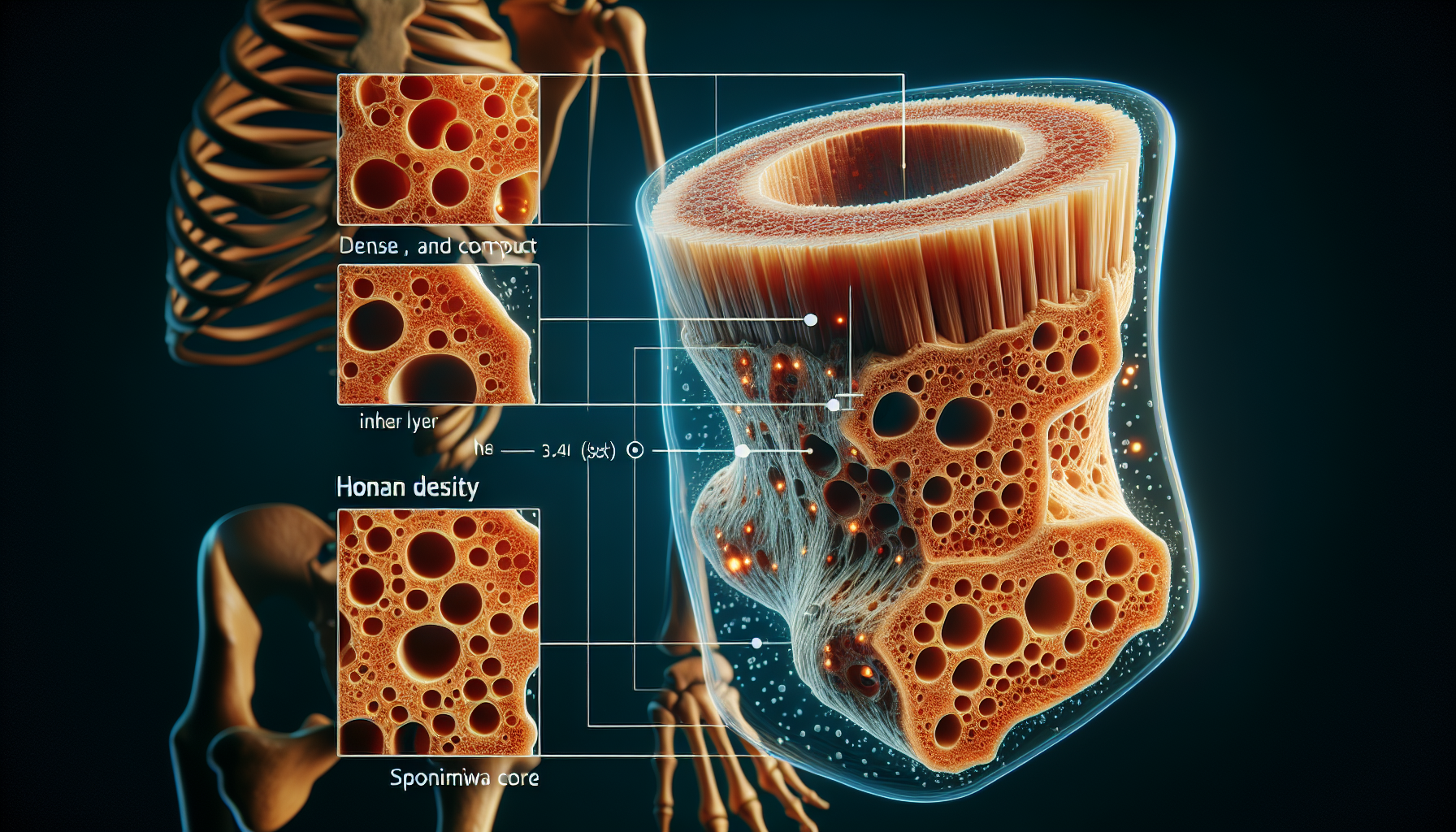Calcium is a vital mineral that plays a critical role in various bodily functions, including the development and maintenance of strong bones. The importance of calcium in maintaining bone strength cannot be overstated, as it is the cornerstone of a healthy skeletal system. This essential nutrient helps to prevent bone-related diseases such as osteoporosis, which is characterized by weak and brittle bones. In this comprehensive guide, we will explore the multifaceted role of calcium in bone health, how to ensure adequate calcium intake, and the interplay between calcium and other factors that influence bone density.
Understanding Calcium’s Role in Bone Health
Bones are living tissues that continuously break down and rebuild throughout our lives. Calcium is the main building block of bone tissue, lending it the hardness and strength necessary to support the body’s structure and protect our vital organs. The body also uses calcium for other critical functions such as muscle contractions, blood clotting, and nerve signal transmission. When dietary intake of calcium is insufficient, the body withdraws calcium from the bones to maintain these functions, which can weaken the bones over time.
To understand the significance of calcium in bone health, it is helpful to look at the process of bone remodeling. This process involves two types of cells: osteoblasts, which build new bone, and osteoclasts, which break down old bone. Calcium, together with other minerals like phosphate, is deposited by osteoblasts to form new bone tissue. A constant supply of calcium is therefore essential to ensure that the balance between bone formation and breakdown favors strength and density.
For a deeper understanding of bone health, including the processes of bone remodeling and how nutrients like calcium contribute, you might find Avix Health’s Bone Health resource invaluable.
Calcium Intake: How Much Do You Need?
The recommended daily intake of calcium varies depending on age, gender, and life stage. Children and teenagers, who are in their peak bone-building years, require more calcium to support their rapid growth. Women over the age of 50 and men over 70 need increased amounts due to the natural decrease in bone density that occurs with aging.
Here are general guidelines for daily calcium intake:
- Children 1-3 years: 700 mg
- Children 4-8 years: 1,000 mg
- Adolescents 9-18 years: 1,300 mg
- Adults 19-50 years: 1,000 mg
- Women 51-70 years: 1,200 mg
- Men 51-70 years: 1,000 mg
- Adults over 71 years: 1,200 mg
It’s important to note that these are general guidelines, and individual needs may vary. For those who cannot meet their calcium needs through diet alone, supplements may be necessary. However, it’s crucial to seek professional advice before starting any supplementation, as explained in Medication & Supplements on Avix Health.
Dietary Sources of Calcium
The best way to get calcium is through a well-balanced diet rich in dairy products such as milk, cheese, and yogurt. Plant-based sources include leafy green vegetables like kale and broccoli, as well as fortified foods like orange juice and cereals. For those who are lactose intolerant or following a vegan diet, calcium-set tofu, almonds, and fortified plant milks are excellent options.
Incorporating a variety of these foods into your diet can help ensure that you are getting enough calcium to support your bone health. For more detailed guidance on how to maintain a diet that promotes strong bones, refer to Nutrition Tips for Healthy Bones on Avix Health.
The Relationship Between Calcium, Vitamin D, and Bone Health
While calcium is essential for bone health, it doesn’t work alone. Vitamin D plays a critical role in helping the body absorb calcium from the gut. Without sufficient vitamin D, the body cannot absorb calcium effectively, no matter how much is consumed. Therefore, ensuring adequate vitamin D levels is just as important as calcium intake for bone health.
Sunlight exposure is the primary source of vitamin D for most people, but it can also be obtained from dietary sources such as fatty fish, egg yolks, and fortified foods. During seasons or in regions with limited sunlight, supplements may be necessary to maintain optimal vitamin D levels.
For a more comprehensive look at the interaction between these two nutrients, explore the resource Vitamin D and Bone Health: The Connection.
Additional Factors Influencing Bone Strength
Exercise is another key component of maintaining strong bones. Weight-bearing and resistance exercises stimulate bone formation and can help prevent bone loss. Activities such as walking, running, and lifting weights are particularly beneficial for bone health.
Furthermore, certain lifestyle choices can have a significant impact on bone density. Smoking and excessive alcohol consumption are known to contribute to bone loss, while a diet high in salt can increase the body’s excretion of calcium.
Genetics also play a role in determining bone strength and density. While you can’t change your genetic makeup, understanding your family history can help you take proactive steps in other areas to reduce your risk of bone diseases.
For insights into how genetics affect bone health, visit The Role of Genetics in Bone Health on Avix Health.
External Resources for Further Information
To deepen your knowledge on calcium and bone health, consider exploring the following resources:
- National Osteoporosis Foundation offers extensive information on bone health, including prevention and treatment of osteoporosis.
- The International Osteoporosis Foundation provides a global platform for the exchange of information and promotes the understanding of osteoporosis.
- The National Institutes of Health Office of Dietary Supplements offers fact sheets and educational materials on calcium and other essential nutrients.
- The American Society for Bone and Mineral Research is a professional society dedicated to bone and mineral research, providing access to the latest research findings and clinical practices.
- The Academy of Nutrition and Dietetics features articles and guidelines on nutrition, including how to optimize calcium intake for bone health.
In conclusion, the importance of calcium in bone strength is clear. A balanced diet rich in calcium, adequate vitamin D, regular exercise, and avoidance of lifestyle choices detrimental to bone health are all crucial for maintaining strong bones. By understanding the factors that influence bone health and taking proactive steps, you can support your skeletal system throughout your life and reduce the risk of bone-related diseases.



